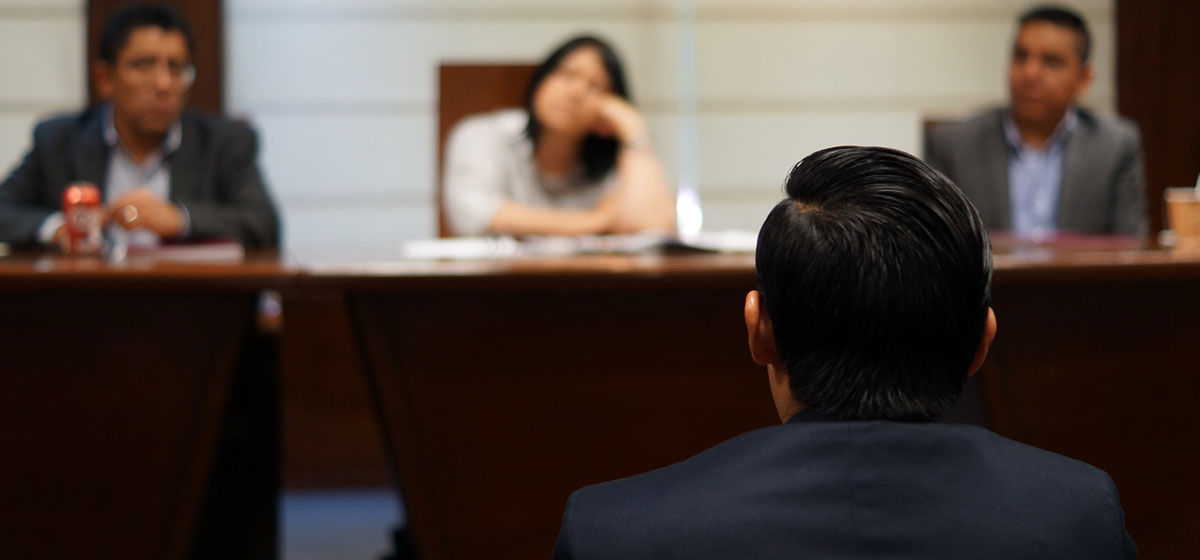The Tricks of the Trade

The plaintiff’s law firm wanted to impress their client with how important the case was to them, and so there were never fewer than five lawyers at the plaintiff’s table. Plus, of course, the plaintiff himself.
Previously in this series: “Fighting the ‘Big’ New York Law Firm: Antitrust Is More Interesting Than You Think, Part IV”
We wanted to impress the jury with how outgunned-but-plucky we were, and so there were never more than two lawyers at the defense table. One of whom, me, was barely a lawyer at all.
Late one Thursday afternoon, Mr. W had called our next defense witness to the stand. But before he could begin the examination, a messenger from Reed Smith entered the courtroom and hustled down the aisle. Mr. W met him at the rail and they fell into an intense conversation.
At that moment, the plaintiff’s lawyer rose and objected to our witness. “Your honor,” he said, “this witness’s testimony has nothing to do with Section 147(A).”
“I’m inclined to agree,” said the judge. “What say you, counselor?”
Since Mr. W was still preoccupied, the judge was looking straight at me. I glanced uneasily back at Mr. W, but then took a deep breath and stood up.
“Your honor,” I said, “as my esteemed colleague well knows, we are not proffering this testimony pursuant to Section 147(A) but, instead, pursuant to Section 218(B)(ii). As we pointed out in our pretrial brief, the U.S. Supreme Court held, in the Ritter case, that the state of mind of” blah, blah, blah.
Then I noticed the judge was staring at me incredulously. Up to that very moment he had assumed, based on my demeanor in the courtroom, that I had the same IQ as the chair I was sitting on. But now he raised both hands in surrender, saying, “All right, all right, I stand corrected! You may proceed, counselor, but make it quick — it’s been a long day.”
I sat down and said to myself, “Well, counselor, you nailed that one!”
But then Mr. W sat down in the chair beside me, leaned over, and growled, “Who the hell do you think you are, Clarence-freaking-Darrow?” I was shocked, and assumed I’d misstated the argument for allowing our witness to testify. But that wasn’t it at all.
“Look here, young man,” Mr. W said. “We’re supposed to be the outgunned-but-plucky local provincials, the guys who barely squeaked through night school. Do you get it?” He pounded his finger on the defense table to emphasize every syllable: “Out-gunned-but-pluck-y! Bare-ly-squeaked-through-night-school!”
I got it, and instantly went back to having the IQ of a chair.
In case you are wondering if there are any depths to which a trial lawyer won’t sink to win his case, the answer is: no.
The first Friday of the trial, Mr. W and I inaugurated a tradition that we followed throughout BS v. BS. Every Friday afternoon, as soon as court adjourned for the day, we walked across the street to a bar and got drunk.
During the first three rounds of martinis, Mr. W went over the court proceedings minute-by-minute. He pointed out everything we’d done right and everything we’d done wrong. He pointed out everything the plaintiff’s lawyers had done right and where they’d screwed up — and how we might take advantage of that.
Then he circled his finger over his head to indicate to the barkeep that we were ready for another round, leaned back in his chair, and leered at me. “So,” he said, “how about that blonde in the jury box?”
I knew exactly what he was talking about, of course. If you were a male you would’ve had to be dead five years not to have noticed her. She’d shown up for the first day of trial wearing a tight black skirt that came barely halfway down her thighs. And as the days and weeks of the trial droned by, the blonde’s skirts got tighter and tighter and shorter and shorter until, when she began to cross her legs, gasps erupted across the courtroom.
But as a young lawyer I was supposed to be paying attention to what was going on in the trial, not ogling some blonde. So I frowned up at the ceiling and said, “Blonde, you say? Hmm. Which chair is she in?”
Mr. W burst out laughing and said, “She’s Juror No. 8, as you well know, and I think she’s sweet on you.”
“Me?”
He nodded. “She’s been staring at you all week and trying to catch your eye. On Monday, I want you to start flirting with her.”
I spit out half my martini.
“Don’t do anything until the judge is preoccupied with something else,” Mr. W said, “or he might declare a mistrial. But if she falls in love with you before the trial’s over, that’ll be one sure vote for the defense.”
“But I’m a married man!” I bleated, raising my left hand to show Mr. W my wedding band.
Mr. W reached over and slipped the ring off my finger, pressed it into my palm, and closed my fingers around it. “You can put it back on,” he said, “when the trial’s over.”
As I mentioned earlier, Mr. W had been assuring me all along — much to my disbelief — that the case of BS v. BS was “in the bag,” and damned if he wasn’t right. After weeks and weeks of trial, hundreds of pages of transcripts, thousands of exhibits, and dozens of witnesses, the jury deliberated for a mere three days before returning a defense verdict on all counts.
The hapless plaintiff — who, if there were any justice in the world, would have walked away with at least $100 million, and maybe $300 million — slunk back to New York empty handed.
I’m pretty sure my original appraisal of Mr. W as not being the ripest apple on the tree was correct. But even though he wasn’t setting any new records at Mensa, the guy was one hell of a trial lawyer.
Next week, believe it or not, I’ll return to the actual subject of this series of posts, which isn’t BS v. BS, but “Antitrust Is More Interesting Than You Think.”
Next in this series: “Making Monopoly Illegal: Antitrust Is More Interesting Than You Think, Part VI”








